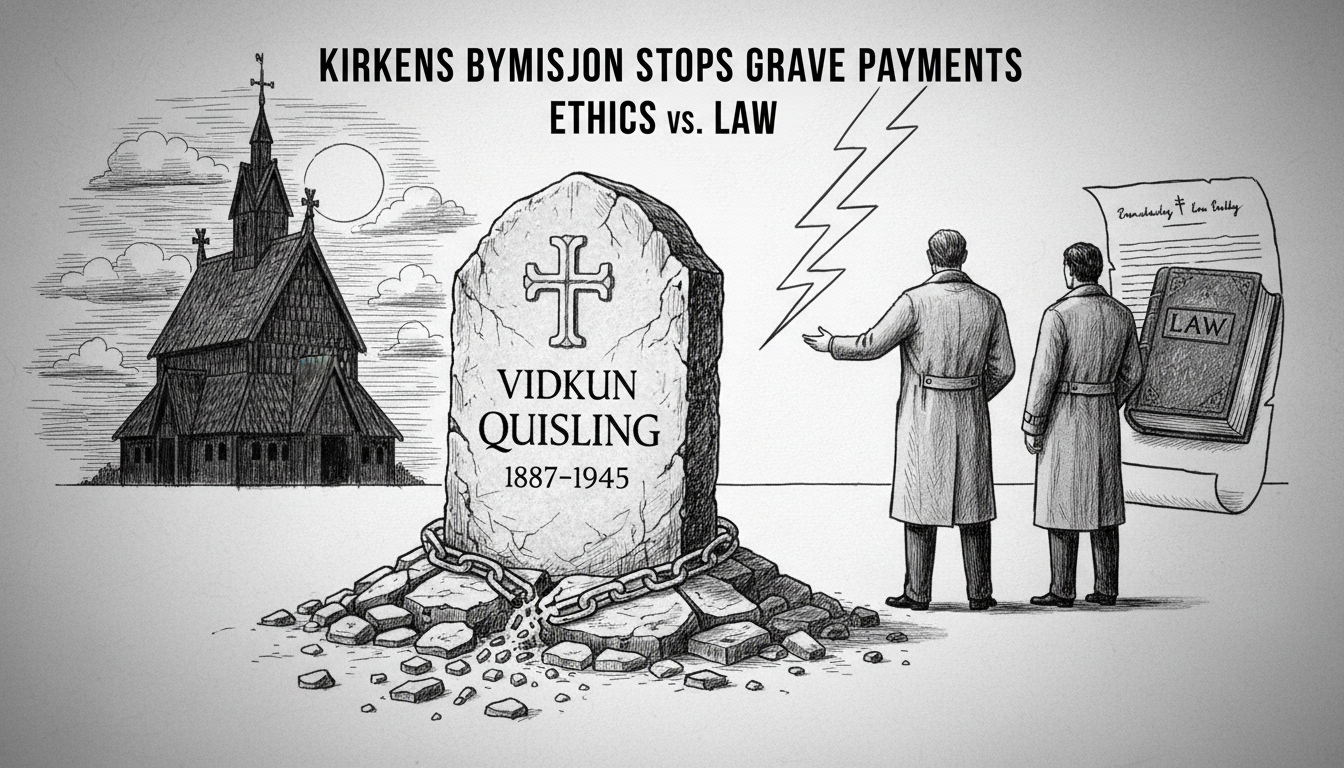A Norwegian church organization has terminated payments for the burial plot of Vidkun Quisling, the infamous Nazi collaborator who ruled Norway during Germany's World War II occupation. The Church City Mission announced it will no longer cover maintenance fees for the controversial gravesite in Skien, claiming the arrangement violates their ethical standards.
Communications director Marthe Bogerud stated the organization has ended all financial obligations. She confirmed they will not pay another bill for the burial plot. This decision follows decades of the mission covering costs for the resting place of one of Norway's most reviled historical figures.
Legal complications arise from a 1980 inheritance agreement. When Quisling's widow Maria died, she left approximately 2.4 million kroner to what was then Oslo Inner Mission, now Church City Mission. The annual interest from this fund was designated to support lonely and disadvantaged elderly people through a foundation.
Accepting this inheritance came with a specific condition. The organization committed to paying the grave site fees at Gjerpen Church for fifty years. This obligation extends through 2030 according to the original terms.
Legal expert Tony A. Vangen responded strongly to the payment refusal. He emphasized that accepting inheritance funds under specific conditions creates binding legal obligations. The attorney noted that organizations cannot unilaterally abandon such commitments simply because they become inconvenient or controversial.
Vangen clarified the potential consequences. The Church City Mission could face demands for specific performance, meaning they might be legally compelled to fulfill the payment obligation. Alternatively, they could lose inheritance rights partially or completely. Compensation claims might also emerge from affected parties.
Local residents in Skien expressed mixed reactions to the situation. Some questioned why a church organization would fund a Nazi collaborator's grave. Others acknowledged the site's historical significance while questioning the funding source. Several residents noted the importance of maintaining the grave as a historical reminder of Norway's dark period under Nazi occupation.
The attorney challenged the mission's justification for stopping payments. He noted that negative publicity alone doesn't constitute legal grounds for abandoning contractual obligations. The organization knew exactly who Quisling was and what he represented when they accepted the inheritance terms in 1980.
Church City Mission maintains its position despite legal warnings. Bogerud confirmed they have already canceled the grave site agreement. She noted the contract period extends to 2029, providing sufficient time to find an appropriate solution before the final deadline.
The grave continues to attract attention on symbolic dates. On October 24, the anniversary of Quisling's execution, flowers and lit candles appeared at the burial monument. This annual occurrence demonstrates how Quisling's legacy remains emotionally charged in Norwegian society.
The dispute highlights ongoing tensions between legal obligations and moral considerations in handling problematic historical legacies. As Norway continues grappling with its World War II history, this case represents how practical arrangements from the past can create present-day ethical dilemmas for contemporary institutions.
What happens next remains uncertain. The Church City Mission appears determined to cease payments despite legal risks. Meanwhile, the grave maintenance requires ongoing funding, creating a practical problem that demands resolution before the current agreement expires.

